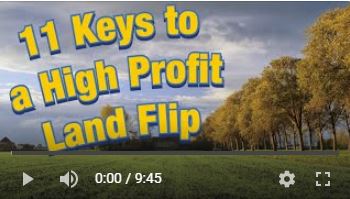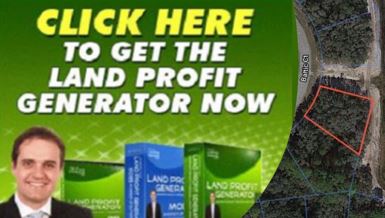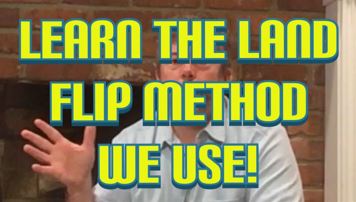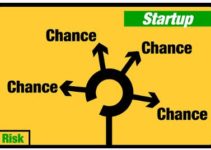The secret is out.
Investing in land is one of the most profitable niches you can be in and a perfect way to build wealth without having to borrow money.
Is it Dave Ramsey’s dream come true…. I’m pretty sure it is.
But before you start investing in land, you need to consider these key attributes before you close on the deal.
Otherwise, a financial loss could be in your future.
This post is meant as an overview, if you really want to start investing in land and don’t want to make any mistakes then I recommend Jack Bosch’s Land Profit Program.
(That’s an affiliate link so if you order from the link above you’ll be supporting this website).
Also, if you want a step by step description of how to find a piece of land to invest in and what investing in land has been like for me, then check out my flipping money article and scroll down to #5 on the list.
11 Attributes of a Perfect Land Investment
#11) Physical Location of Property
Unlike my mistake that I’ll describe below, you want to make sure you’re looking at the right piece of land before investing.
Most raw land doesn’t have a physical address because addresses are typically only given when a structure is built.
So you’ll want to use parcel ID number’s, legal descriptions, and maps to make sure you’re looking at the right piece of land.
I once went and looked at a property, made an offer, and purchased the lot (yes… closed on the deal), only to find out I was looking at the wrong lot.
So yes, I bought a property from an owner but it was an entirely different property than I thought but in the same neighborhood.
I about had a heart attack but luckily for me the property I bought was more valuable than the one I thought I was buying.
This could have easily went the other direction and I could have had a financial loss.
So be extra careful to make sure you knew exactly which piece of land you’re looking at, whether it’s online or in person.
#10) Size and Shape of the Lot
This is more important than you think.
You want to assess the shape and size of the lot or piece of land you’re considering.
Is it a weird shaped lot?… such as a very long and narrow lot, or is the area of the land spread out uniformly?
I’ve sent letters to owners based on the size of the lot and if it’s long and narrow it could still be a good size, but that’s all that’s good about it.
There is nothing you can do with it.
There are often easements and setback requirements to build as well, so don’t just assume you can build on something if you think you can fit it… it doesn’t work that way.
If you’re in an area like mine, you have to meet certain criteria in order to build.
#9) What’s around the property?
This is very important as well.
Is it in a growing or declining area?
Is there a market for land there?… If you have no customers then all you have is dirt.
Are there other houses near it?
Will people be able to get water and electric fairly easy?
Is it close to development, stores, shopping, food, etc?
If it’s a lot, is the neighborhood good or bad?
Your profitability is based your purchase price offer and the deal.
You may have heard the real estate statement, you make money when you buy, not when you sell.
This holds true for land as well.
If you buy it wrong and offer too much, you lose money.
If you offer too little, you may lose a deal completely.
So everything about the surrounding area of the land should be taken into consideration before you invest.
#8) Does the Land Have Legal Access?
Legal access means that you can legally get to the property without trespassing on somebody else’s land.
Everyone has different ideas on this, but most land investors I know are strict about making sure there is legal access.
I know, maybe someday we’ll all be flying drones and the price of lots in the middle of nowhere (with no roads) will shoot through the roof.
Until that day, buy land with legal access or at the very least a legal easement.
My experience has been that buying lots without legal access is easy.
Selling them is difficult.
Again, do not buy any land without legal access.
Also keep in mind that access and legal access are two different things.
So if you can get to the land easily, that is what I consider partial access.
If you can’t get to it without going through a fence or other pieces of land, that is no access.
The best scenario is land that touches a street… that is almost certainly legal access and would be a good land investment if the price is right.
#7) Is the Land Buildable?
This isn’t necessarily a deal breaker but it depends on the deal.
If it’s a large piece of hunting land, buildability isn’t really an issue.
But usually people will want to eventually build a house or cabin or something.
It’s best to find out what can be built on the land before you buy it, assuming you already have a contract in hand.
Some lands are swampy, sometimes there may be an endangered species that doesn’t allow you to build, sometime there are restrictions like no mobile homes.
All these things are important because your potential buyers will want to know all that anyway.
Since you’ll have to find out to better sell it, you might as well find out before you purchase it.
Plus, finding out before the purchase can save you money if you find issues because it will give you a reason to renegotiate.
#6) Land Use Restrictions
I just talked about this a little, but find out what the usage restrictions are.
Even if it’s buildable, sometimes there are restrictions on what you are allowed to build on the land.
What can and can’t be built?
Are there size restrictions?
Is it a residential lot in the middle of a commercial zone?
Is it a commercial lot in the middle of residential zone?
All these things can affect how easy it is to sell and how much you can sell it for.
Which means, it also affects your offer price… so make sure you’re making offers correctly!
#5) Is the Property in a Flood Zone?
Some flood zone areas allow for building construction, but it requires the home owner to have flood insurance.
That’s an added monthly expense on top of the mortgage and mortgage insurance so many homeowners don’t want land like that.
That being said, flood zones can also affect how much you can sell the land for and if you didn’t know that before buying or making your offer, you could be at a higher risk of losing money.
For example, I know when I’m investing in land near me that there are certain spots that have low laying swampy flood areas that are not allowed to be built on at all.
I’d be in big trouble with swfwmd if I tried to build there.
If I bought any of those I would be struggling to sell them because not much can be done with them.
Before making any investment in land, make sure you know if it’s affected by a flood zone.
#4) What’s the topography?
If you want to have success investing in land, you must understand what topography is.
In simple terms, it’s just what the elevation of the land is like?
Is it mostly flat?
Does it rise and fall in odd ways or very steeply?
Does it have a gradual rise in elevation?
All these things can affect the look, cost, and final product of a construction project like a home or business.
The topography could even affect whether a building can be built at all.
So at least take a look at the topography and make sure there’s no weird stuff going on.
#3) How Much are Annual Taxes?
(and are they paid up)
Investing in land and owning a piece of dirt isn’t nearly as expensive as a house or commercial building, but you still have to pay taxes.
Uncle Sam wants his money and if you don’t pay… you could lose the property.
Make sure you look up the property taxes to see if they are up to date (if they’re not, somebody will have to pay them before the property ownership changes hands).
Also, see how much they are each year.
What will the holding cost be if it takes you a few years to sell it or if you just choose to wait a year in order to lower your capital gain taxes.
If an owner owes taxes, I like to make that part of my offer and make it very clear that I’ll be paying the taxes off.
If they are selling mostly because they don’t want to pay taxes again, this is a great way to close the deal.
They may have contacted you just because they didn’t want to pay the taxes and now you’re offering to pay the taxes and cut them a check.
It’s a powerful way to craft an offer!
#2) What are the Annual HOA Dues?
This is another holding cost line item.
You can also work any outstanding HOA dues into your offer just like you would with outstanding taxes.
If you close with a title company, which is what I recommend, they will request an estoppel that will tell you how much is owed to the Home Owners Association and how much the annual, quarterly, or monthly fees are.
I always like to ask the seller what they owe OR call to verify how much the yearly fees are if the land is in an HOA.
Unfortunately, some HOA’s have ridiculous fees.
If the fees are high, you’ll probably want to offer low enough to sell quickly or at least know how much it will cost to hold the property for a long length of time.
#1) What Utilities are Available
This is good to know when it’s time to sell because you’ll get questions about it.
If the property is in a neighborhood or around other houses it probably won’t be difficult to get electric and water.
It’s also a good idea to know if it is on city sewage or will need a septic tank.
Again, these are all things a potential buyer would want to know.
Often there’s no way of knowing what will be available unless you call the city or county to find out this information.
Remember, none of this stuff needs to be known to make an offer.
But once you have an offer accepted, you want to do the legwork to understand what you’re getting into.
The ideas is to see if you’re offer price is still going to be profitable for you.
If you want to learn more about this topic, make sure you check out the video below where I explain my process and show you how I made over $100,000 flipping land.
And for those of you who are really serious, scroll down to #5 on this flipping blog post to see step by step how this is done.
Lastly, remember that making money is great, but salvation is even better.

Jason & Daniele









